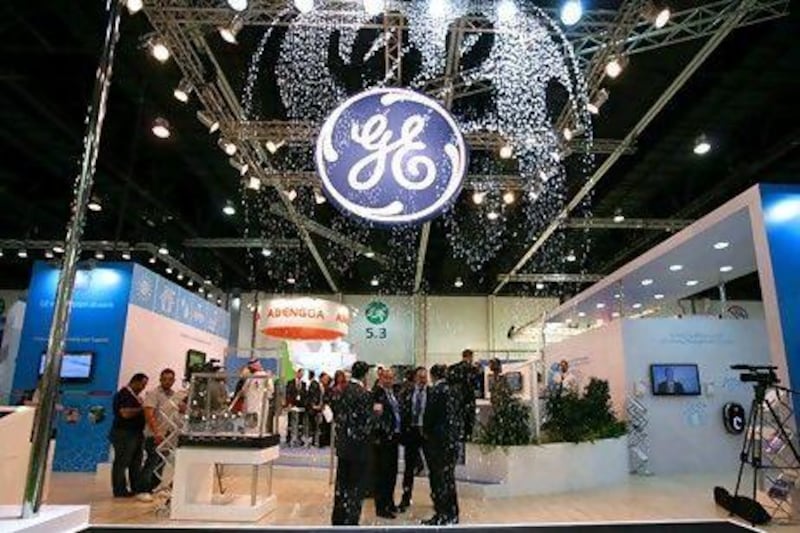The global medical giant GE Healthcare has hailed the Gulf, the Middle East and North Africa as its "hidden jewel".
The ringing endorsement came as it unveiled in multibillion-dollar growth plans with the region bucking economic woes gripping Europe and North America.
GE Healthcare, a US$18 billion (Dh66.11bn) a year business, which sells medical technologies such as diagnostic equipment and imaging machines, is among the top revenue generators within the larger GE conglomerate.
This segment is increasingly being driven by demand from new or growing hospitals, as well as spending by government ministries of health located in the Gulf and the wider Middle East and North Africa (Mena) region.
"We've got parts of the world - specifically a lot of the developing economies, including this neighbourhood - doing very well [and] growing tremendously," said John Dineen, the chief executive of GE Healthcare, who spoke on the sidelines of the Arab Health conference in Dubai yesterday.
Countries including China, India and Brazil offer "very visible and real opportunities for growth", said Mr Dineen. "But I really think the hidden jewel is the Middle East and North Africa. This is an area of tremendous growth, and tremendous investment."
On Friday, the company's parent conglomerate General Electric (GE) reported total revenues of $38bn for its most recent quarter across the entire company. That was down 8 per cent compared with the same period a year earlier, due largely to its sale of a majority stake in NBC Universal last year.
Revenues from the healthcare segment of the business rose 1 per cent, to $5.16bn, in the last quarter. But profits in this space dropped 5 per cent - to $953 million.
Sales of GE's health products in most countries around the world were performing better in 2010, said Mr Dineen. That changed last year, as concerns about the economy increased in the US, while crisis hit parts of the euro zone then spread to other countries.
"The US is flat to slightly up, and Europe is a real pressure point - obviously because of the economy and the fact that the healthcare system is directly and publicly financed," said Mr Dineen. "So the challenges we're seeing there is resulting in a slowdown of the business."
Unrest in parts of the region during the Arab Spring did not have a huge impact on the business, he said. "Before that, and after that, there's a real focus on investing and improving in the health care system.
"If anything, in the long run, it's going to enhance that investment," he added.
Yet the company did note high levels of spending on advanced research and development was partly to blame for the profit drop. "That's put some pressure on the profitability," said Mr Dineen.
In 2009, GE announced it would commit $6bn of financing and technology over six years specifically on healthcare innovation and providing better care to more people at a lower cost.
The company now seeks to boost revenues by benefiting from an increase in spending on medical technologies as hospitals prepare to open or expand within Mena.
In the UAE alone, spending in the healthcare market is forecast to grow more than 8 per cent this year, to Dh31bn, according to data released by Business Monitor International last month.
Yesterday, the Lifeline Hospital Group of Abu Dhabi and the Mir Hashem Khoory Group of Dubai announced plans for a new 94-bed hospital, set to open in Dubai by 2014.
A new facility in Dubai by the Saudi German Hospitals Group is now in "soft" launch mode, with an official opening set for March. Also, a Dh400m hospital was announced for Dubai Healthcare City on Monday.
Some of the research and development GE is putting into its healthcare division is intended to spur innovation and appeal to buyers for these kinds of medical facilities.
"As people build out hospitals and add capacity, that's an area of growth, and in that particular part of our business we make sure that our products are more and more relevant," said Mr Dineen.





